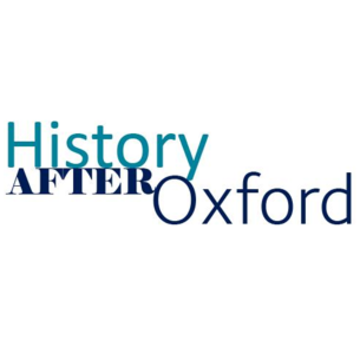History Careers - Banking Graduate Programme
the people with whom you work will always be one of the most important factors and something to consider when researching an organisation
Malcolm Glennie is originally from County Durham and studied History at St Anne’s between 2014 and 2017. For school, he went to the local state comprehensive between Years 7 and 11 before attending a local state sixth form college for A levels.

Career Summary
2017: Primary School Teacher
2018: Executive Search Analyst, Financial Services
2018-2019: Investment Associate
2019-2020: Executive Search Researcher, Financial Services
2020-present: Graduate Analyst, Customer Banking Solutions Graduate Programme, Barclays
As the end of my time at university honed into view, like many others, I still wasn’t sure what I wanted to do once I graduated. I had undertaken several internships during my time at university to enrich my CV as much as possible including volunteering with a GCSE History class at a secondary school in Oxford, internships with the Civil Service, an education charity, and volunteering with my college’s access and outreach work.
My first job on leaving university was on a teaching programme and for a short period I became a primary school teacher, teaching a Year 4 class at a struggling school in the East Midlands. I then moved to London to take up a very different role working in financial services executive search. If, like me at the time, you’ve never heard of executive search, it is essentially the sector which manages the recruitment of senior executives such as CEOs, Chief Financial Officers, members of Boards of Directors etc. I worked on filling roles in the financial services industry spending most of this time working on projects for asset management firms. It was here that I first learned the importance of a positive company culture and that no matter what sector you work in, the people with whom you work will always be one of the most important factors and something to consider when researching an organisation and take note of when you go for interviews. Luckily, the culture here was positive with a social scene that allowed colleagues to get to know each other away from the office. I remember that one of the ways I got to know some of the people outside of my own team was by running the office-wide sweepstake for the 2018 World Cup and providing regular weekly commentaries over email as the results came in.
I enjoyed this job, met some great people and felt I was learning a lot but after less than a year, I decided to move back home to the North East for family reasons where I worked for a small company that helped raise finance for start-up businesses. The following year, I was given the opportunity to return to London and to executive search, though this time for a different company. I was lucky enough to receive several job offers after a round of interviews but ultimately I made my decision based on what I had learned about the culture at the different firms where I had interviewed. Of course, opportunities for progression and development must always be front of mind but I had been satisfied that such opportunities existed at all the firms I had applied to. I stayed with this business for over a year and again met lots of great people and engaged in interesting work, placing senior executives in banking, insurance, FinTech, and at the UK’s financial services regulator, the Financial Conduct Authority (FCA). At this company, I again tried to commit to what might be termed extra-curricular activities. For example, I ran a firm-wide fantasy football league, took part in a 26 mile charity hike across the Yorkshire Three Peaks organised by a colleague, and helped to mentor an intern in our team during the summer.
Speaking to lots of people with long and interesting careers in financial services led me to consider entering the industry myself and after some thought and research, I started to apply for roles. Thankfully, I was successful and since August 2020, I have been on the Customer Banking Solutions Graduate Programme at Barclays, a two-year programme where you rotate through different roles every six months.
Some students and graduates, including those studying history can often wonder how their degree is relevant to the corporate world. The truth is many firms respect the transferable skills that can be developed in the course of studying history. The main skills from my degree that I’ve highlighted in interviews have been those of research, communication, and presentation (written and verbal). These skills as well as others are relevant to roles in just about every sector as ultimately, they show an ability to sift through vast amounts of information, pull out what’s relevant, draw useful conclusions, and communicate them clearly. While I was in executive search, this was relevant when researching candidates and making presentations to clients in writing and in person. Since moving into banking, I’ve found there it is a sector with just as much demand for people with the ability to research efficiently and communicate clearly. Another thing I’ve highlighted about my degree in the past is its varied nature. Term to term I could go from writing about the Byzantine Empire in the sixth century to Britain in the 1980s. Many firms appreciate the ability of applicants to demonstrate their ability to be flexible and to adapt to new projects and types of work. This is certainly relevant for graduate schemes like mine that involve frequent rotations. The more you can back all this up with examples and experience from internships and volunteering, the better.
Top tip to my younger self –
It’s never too early to start thinking about the end of university! Commit time to researching and thinking about it well in advance of final year.
Top tip to graduates –
Don’t just chase the money! Opportunities to learn and develop, company culture, and enjoying yourself are crucial!




